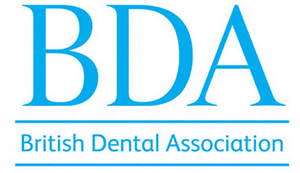- Home
- About us
- Find a practice
Practices in East Sussex
Practices in South West
Practices in Norfolk
Practices in Portsmouth
- Advanced Services
- Treatments
- Our Fees
- Reviews
- Contact
- Home
- About us
- Find a practice
Practices in East Sussex
Practices in South West
Practices in Norfolk
Practices in Portsmouth
- Advanced Services
- Treatments
- Our Fees
- Reviews
- Contact
Request an appointment
For dental appointments, please fill in the form below and we will call you back or email you to confirm your appointment.
X-Rays
Why would I need an x-ray?
Early tooth decay does not tend to show many physical signs. Sometimes the tooth looks healthy, but your dentist will be able to see from an x-ray (radiograph) whether you have any decay present under the enamel, any possible infections in the roots, or any bone loss around the tooth. X-rays can help the dentist to see in between your teeth or under the edge of your fillings. Finding and treating dental problems at an early stage can save both time and money.
In children, x-rays can be used to show where the second teeth are and when they will come through. This also applies to adults when the wisdom teeth start to come through.
How often should I have x-rays taken?
If you are a new patient, unless you have had dental x-rays very recently, the dentist will probably suggest having x-rays. This helps them assess the condition of your mouth and to check for any hidden problems. After that, x-rays are usually recommended every 6 to 24 months depending on the person, their history of decay, age and the current condition of their mouth.
Whose property are the x-rays?
X-rays are an essential part of your health records and must be kept with your personal dental file. As dental records work differently to normal health records, your dentist must keep your dental records for at least two years from the date of your last course of treatment. You are entitled to copies of your records and X-rays under the Access to Health Records Act 1990. But you will have to pay for these copies. In most cases your X-rays and records will not be needed by your new dentist. However, if they are important, your new dentist will let you know and either ask for your permission to send for them, or ask you to fetch them personally.
What will an x-ray show?
X-rays can show decay that may not normally be seen directly in the mouth, for example: under a filling, or between teeth. They can show whether you have an infection in the root of your tooth and how severe the infection is.
In children an x-ray can show any teeth which haven’t come through yet, and let the dentist see whether there is enough space for the teeth to come through. It can show any impacted wisdom teeth in adults that may need to be removed, before they cause any problems.
Are x-rays dangerous?
The amount of radiation received from a dental x-ray is extremely small. We get more radiation from natural sources, including minerals in the soil, and from our general environment.
With modern techniques and equipment, risks are kept to a minimum. However, your dentist will always take care to use X-rays only when they need to.
What if I’m pregnant?
You should always tell your dentist if you are pregnant. They will take extra care and will probably not use X-rays unless they really have to, particularly during the first three months.
What types of x-rays are there?
There are various types of x-ray. Some show one or two teeth and their roots while others can take pictures of several teeth at once.
The most common x-rays are small ones, which are taken regularly to keep a check on the condition of the teeth and gums. These show a few teeth at a time, but include the roots and surrounding areas.
There are large x-rays that show the whole mouth, including all the teeth and the bone structure that supports the teeth. These are called panoramic X-rays.
There are also medium-sized X-rays, which show either one jaw at a time, or one side of the face.
There are also electronic imaging systems in use today. These use electronic probes instead of X-ray films and the picture is transmitted directly onto a screen.
Why does the dentist leave the room during an x-ray?
The dental team might take hundreds of X-rays every week. Staff limit the amount of radiation they receive by moving away from the X-ray beam. However, the risk to patients from one or two routine X-rays is tiny.
Staff check how much radiation they are exposed to by wearing a small badge during working hours. This is sent off to be analysed at regular intervals.
Source: British Dental Health Foundation
Book an appointment at Dentistry For You
To start your journey to a new smile book an appointment with us today.
Why Dentistry For You?
- Established over 35 Years
- NHS & private dental care
- High quality treatments provided by experienced dentists
- In house quality assurance programme
- Over 2700 patient reviews across all locations
- All our practices are wheelchair friendly
Patient satisfaction is very important to us





